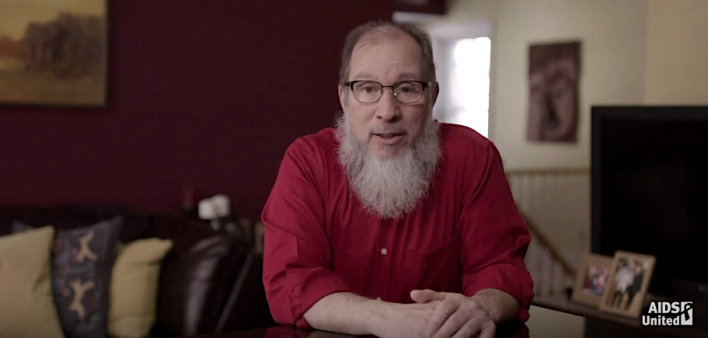In his State of the Union address, Trump said he wanted to end HIV transmissions in the United States by 2030. While this is a good goal, actions speak louder than words. His proposed changes to Medicare Part D threaten to reignite the HIV epidemic. Below is a press release about our recent campaign to protect Medicare Part D.
AIDS United Launches Major Ad Campaign Urging Trump to Protect Medicare; Fulfill Commitment to End HIV Epidemic
Trump’s Medicare Part D Rule Restricts Access to Life-Saving Medicines, Potentially Reignites Epidemic
WASHINGTON -- Following President Trump’s pledge at the State of the Union to end HIV transmissions by 2030, AIDS United is launching a new six-figure advertising campaign today urging the administration to make good on this commitment and withdraw its proposed Medicare Part D rule, which would restrict access to life-saving HIV medicines and potentially reignite the nation’s epidemic.
You can view AIDS United’s first ad above, or click here.
“We are encouraged by the President’s call to end HIV transmissions by 2030; however, this goal is achievable only with hard work and the appropriate investment of resources,” said AIDS United President & CEO Jesse Milan, Jr. “We know what it will take to achieve this and will be looking to the Administration to enact policy reforms that are fully consistent with the goal of ending this epidemic. We urge Secretary Azar and President Trump to honor their new commitment by addressing all issues related to HIV prevention, care, and treatment. They can start by withdrawing the proposed rule change to Part D’s protected classes.”
The six protected classes of Medicare Part D were created to ensure people with serious medical conditions whose health would be severely impacted by any treatment interruption, like HIV and epilepsy, could access the best medicines as prescribed by their doctor. These protections have helped millions and contributed to the significant reductions in new HIV diagnoses across the country. Without the protections afforded to these of drugs, insurance companies could potentially interfere in treatment decisions and restrict access to life-saving medications for the more than 250,000 people living with HIV who are currently enrolled in Medicare.
The AIDS United campaign highlights the life-threatening consequences the proposed rule would have on people living with HIV and calls on the public to contact their members of Congress and urge them to oppose the change at MyStatusMyMedicare.
Advances in antiretroviral therapies have helped people live longer and more productive lives than ever before. Where approximately 50,000 people were dying annual from the disease at its peak, HIV deaths have dropped to under 7,000 today. Indeed, someone diagnosed today can expect to live an almost normal life span. And as people living with HIV live longer, the proportion of this population who are eligible for Medicare will more than double over the next two decades. That means that this rule changes could delay or prevent hundreds of thousands of people from getting the treatment their doctor prescribes to keep them healthy. Given the scientific consensus that undetectable equals untransmittable, the change could also significantly limit the prevention benefits of viral suppression among a growing population of people living with HIV. This could potentially lead to a resurgence in the epidemic across the country.
# # #
About AIDS United: AIDS United’s mission is to end the AIDS epidemic in the U.S. through strategic grant-making, capacity building, formative research and policy. AIDS United works to ensure access to life-saving HIV/AIDS care and prevention services and to advance sound HIV/AIDS-related policy for U.S. populations and communities most impacted by the epidemic. To date, our strategic grant-making initiatives have directly funded more than $104 million to local communities and have leveraged more than $117 million in additional investments for programs that include, but are not limited to HIV prevention, access to care, capacity building, harm reduction and advocacy. aidsunited.org.








2 Comments
2 Comments